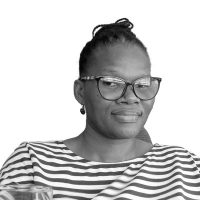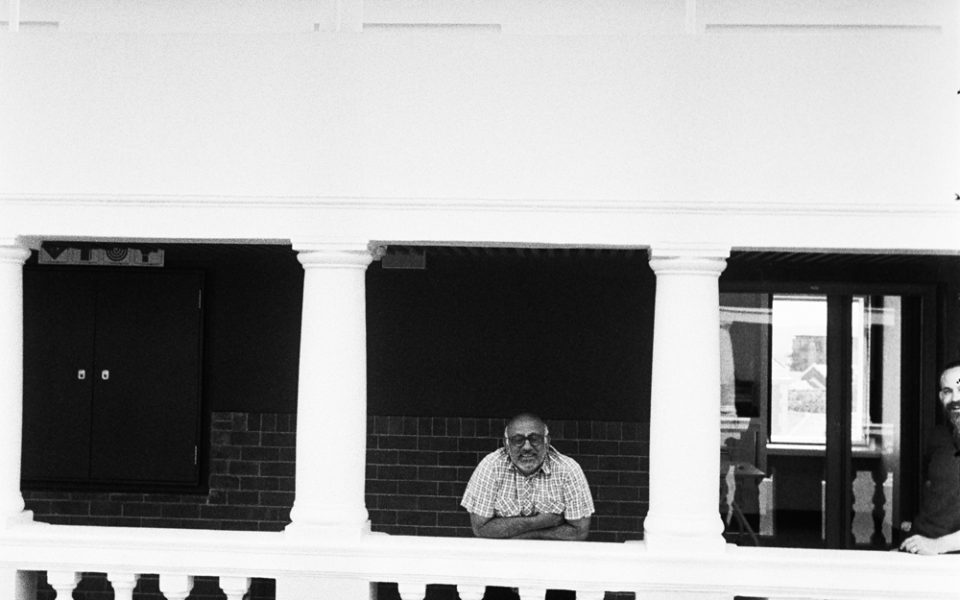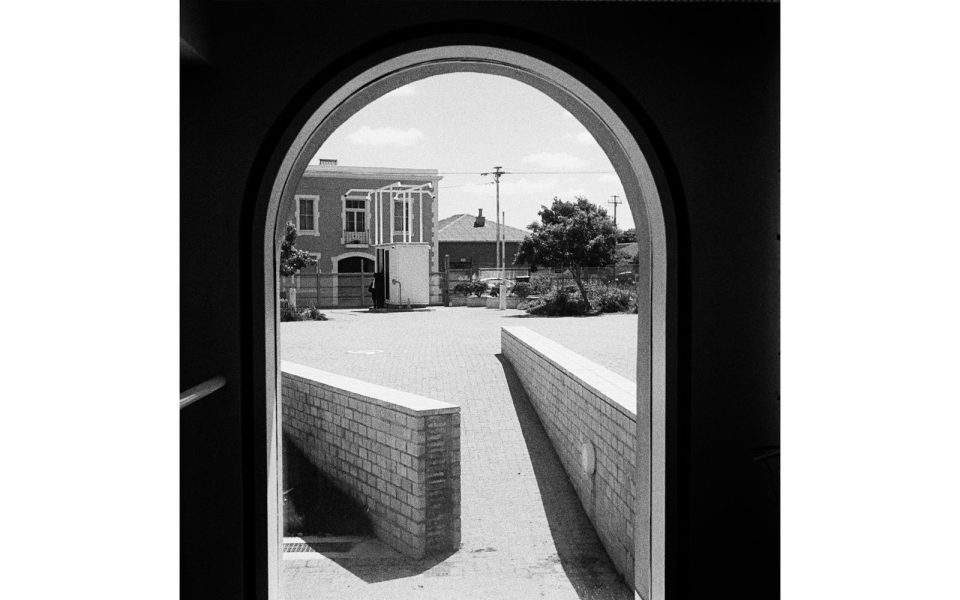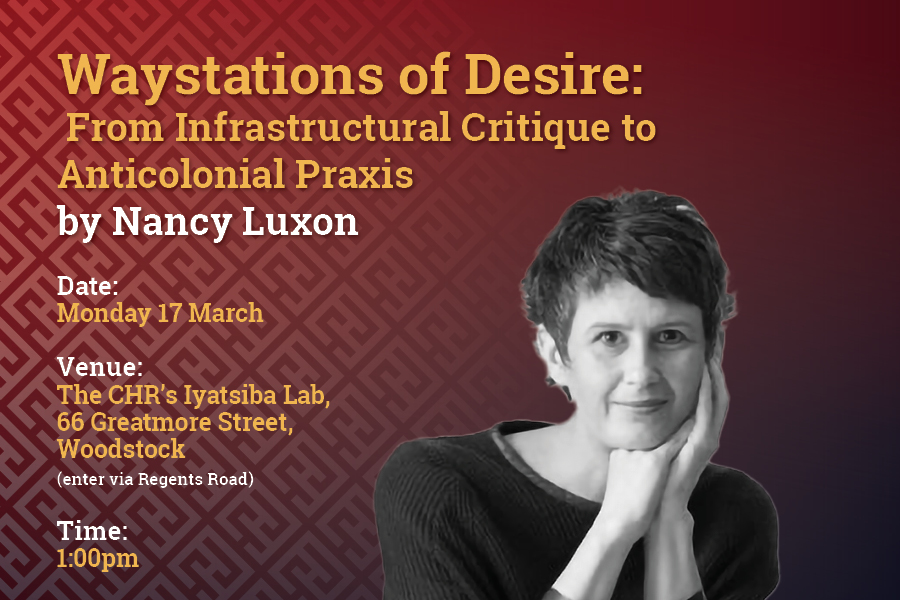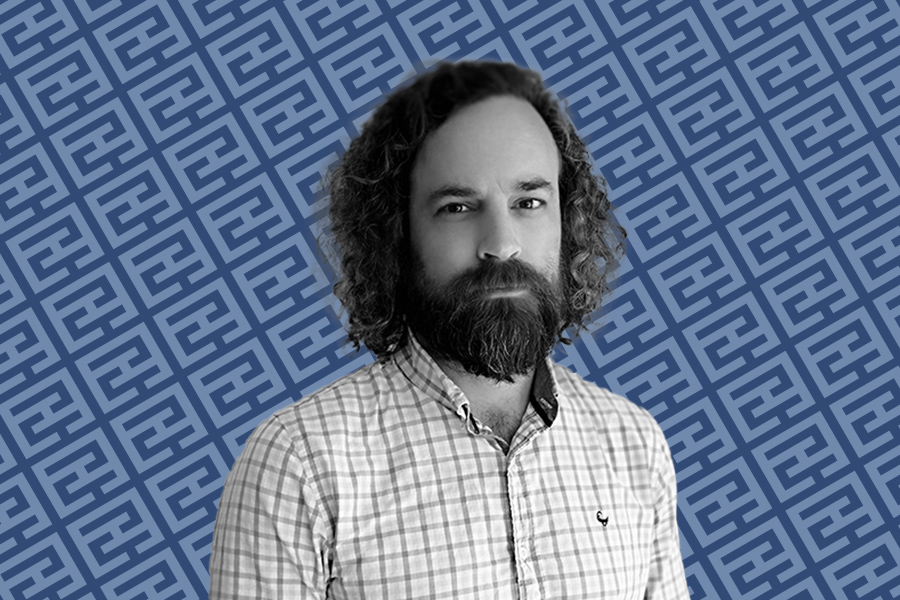Between Poetry and Biography: Ruth Mompati, Charlotte Maxeke and intellectual histories of liberation
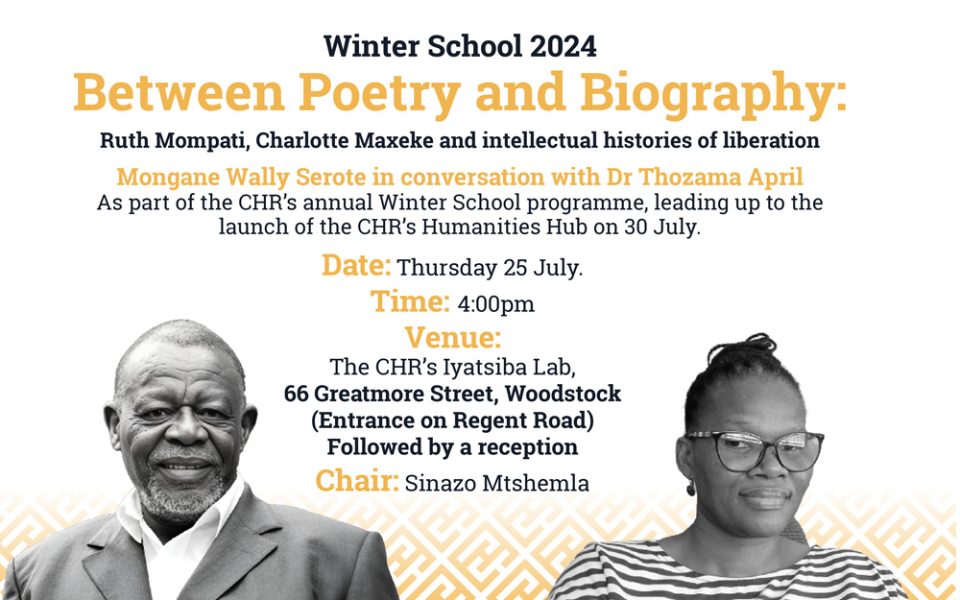
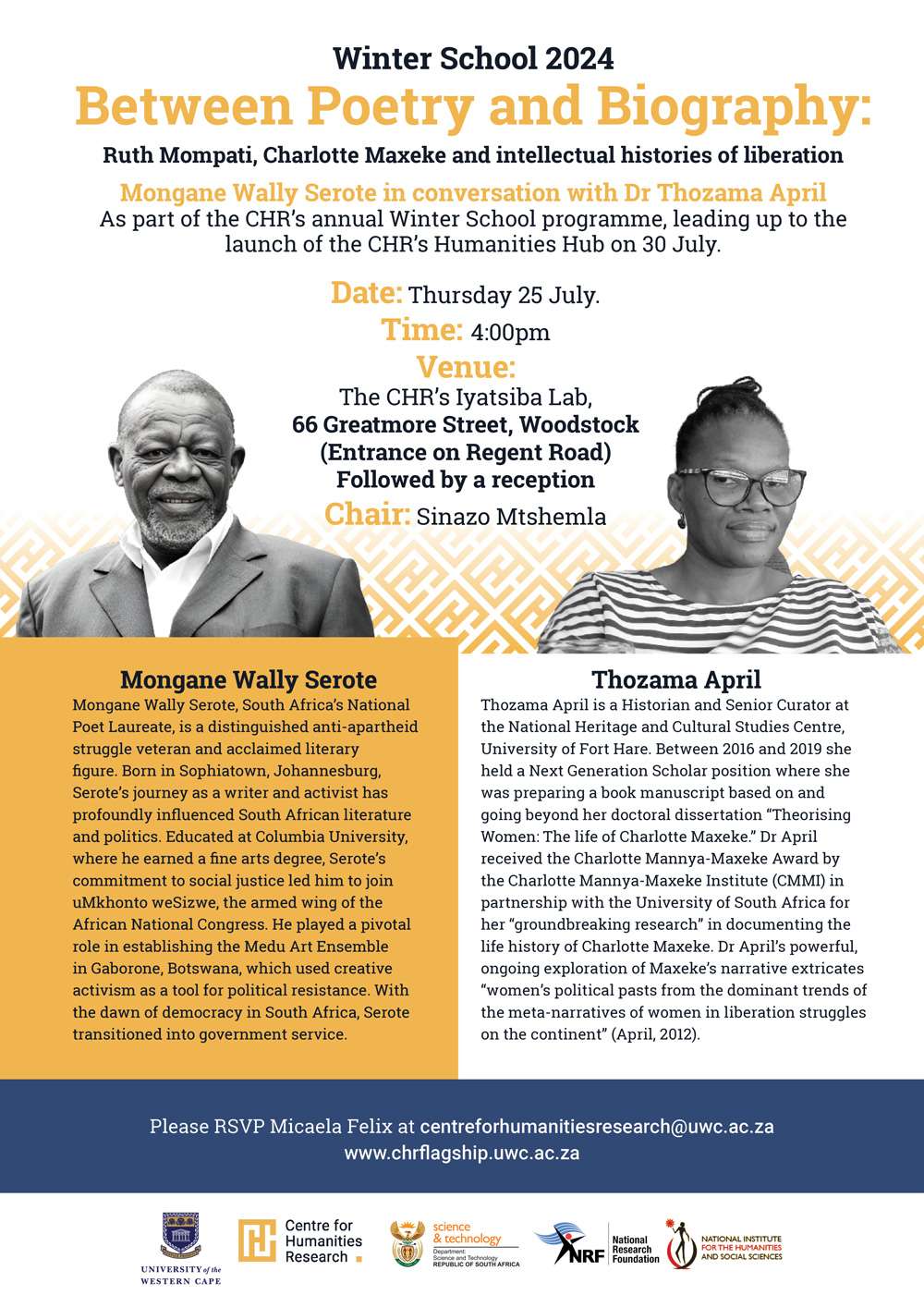
Between Poetry and Biography: Ruth Mompati, Charlotte Maxeke and intellectual histories of liberation
Mongane Wally Serote in conversation with Dr Thozama April.
The CHR welcomes Mongane Wally Serote, South Africa’s National Poet Laureate, and Thozama April, who will be giving a public lecture as part of the CHR’s Winter School programme on Thursday 25 July and the launch of the CHR’s Humanities hub on 30 July.
Date: Thursday 25 July.
Time: 4:00pm
Venue: The CHR’s Iyatsiba Lab, 66 Greatmore Street, Woodstock, (Entrance on Regent Road).
Chair: Sinazo MtshemlaConvened in collaboration with the SARChI Chair in Social Change, University of Fort Hare (UFH), the Interdisciplinary Centre for the Study of Global Change (ICGC), University of Minnesota (UM), and the and the Institute of the Humanities and Global Cultures (University of Virginia), this year’s theme coalesces around the question of Partition / non-Partition, and will include three public lectures by Robert Trent Vinson, Rita Duffy and Mongane Serote.
Speaker biographies
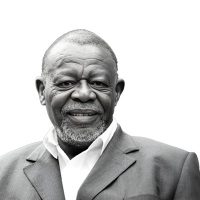
Mongane Wally Serote
Mongane Wally Serote, South Africa’s National Poet Laureate, is a distinguished anti-apartheid struggle veteran and acclaimed literary figure. Born in Sophiatown, Johannesburg, Serote’s journey as a writer and activist has profoundly influenced South African literature and politics. Educated at Columbia University, where he earned a fine arts degree, Serote’s commitment to social justice led him to join uMkhonto weSizwe, the armed wing of the African National Congress. He played a pivotal role in establishing the Medu Art Ensemble in Gaborone, Botswana, which used creative activism as a tool for political resistance. With the dawn of democracy in South Africa, Serote transitioned into government service. As a Member of Parliament, he oversaw the construction of the Freedom Park Memorial, a significant national heritage site commemorating those who sacrificed their lives in the struggle for freedom. Serote’s literary career began with his debut poetry collection, Yakhal’inkomo, which won the prestigious Ingrid Jonker Prize in 1972. This marked the beginning of a prolific writing career spanning decades, during which he published numerous poetry collections and novels. His work, Third World Express, earned him the Noma Award in 1993, solidifying his status as a leading voice in African literature. In recognition of his contributions to literature and language, Serote received the English Academy of Southern Africa Medal in 2003. The following year, the Chilean government honoured him with the Pablo Neruda Award, acknowledging his international impact. In 2007, the South African government bestowed upon him the Order of Ikhamanga (Silver) for his excellent contribution to literature, particularly poetry, and for using his artistic talents in service of South African democracy. Serote’s body of work and activism continue to inspire new generations of writers and thinkers, cementing his legacy as one of South Africa’s most important literary and cultural figures.
Thozama April
Thozama April is a Historian and Senior Curator at the National Heritage and Cultural Studies Centre, University of Fort Hare. Between 2016 and 2019 she held a Next Generation Scholar position where she was preparing a book manuscript based on and going beyond her doctoral dissertation “Theorising Women: The life of Charlotte Maxeke.” Dr April received the Charlotte Mannya-Maxeke Award by the Charlotte Mannya-Maxeke Institute (CMMI) in partnership with the University of South Africa for her “groundbreaking research” in documenting the life history of Charlotte Maxeke. Dr April’s powerful, ongoing exploration of Maxeke’s narrative extricates “women’s political pasts from the dominant trends of the meta-narratives of women in liberation struggles on the continent” (April, 2012). It significantly brings to light Maxeke’s international creative and intellectual pursuits and her important influence within the Pan-Africanist thought and theory of the Black Atlantic, as well as leading international thinkers and activists such as W.E.B. Du Bois. In 2020, Dr April took up a permanent post at the University of Fort Hare.


